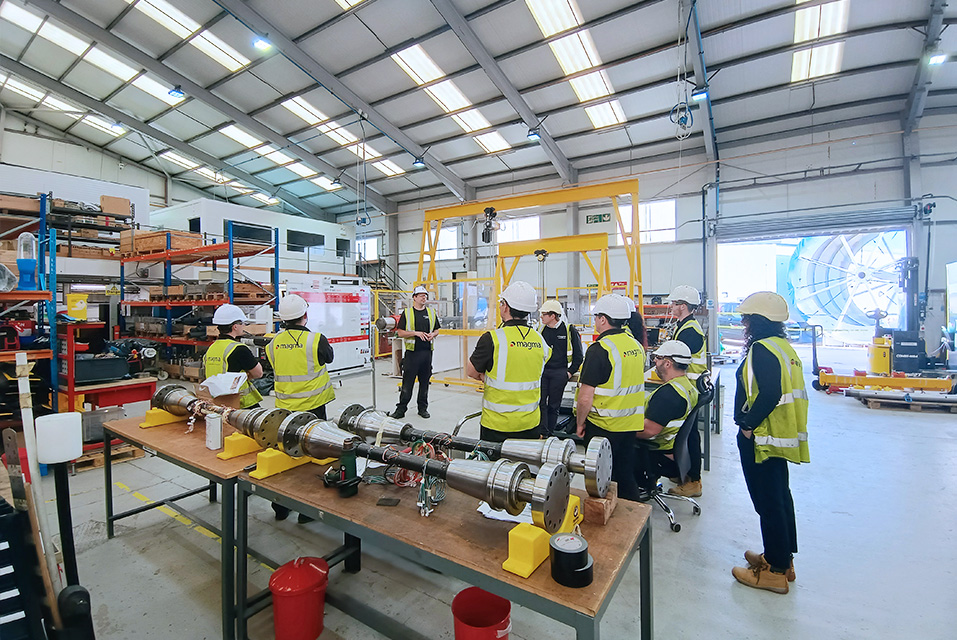Barely a month into 2020 and we’re already entering the first hiring peak of the season, which means job seekers may be about to undergo assessments that can seem bewildering in variety and scope.
So we thought we’d kick off our blogging year by providing a guide to the most common forms of assessment, with tips to ensure you get the best out of each.
The most likely forms of assessment you’ll face as a jobseeker are:
- Telephone or video interviews
- Face to face interviews (one to one)
- Panel Interviews
- Assessment Days
- Group Interviews
- Psychometric Testing
Telephone and video interviews
Both these forms of interview are usually part of an initial screening process. If you’re selected for either it means your CV is interesting, but each interview can still be brief (often about twenty minutes to half an hour) and is normally about ascertaining whether you warrant a face to face interview. Both can be used to find out whether you can talk about your CV credibly.
So know your CV well and make sure you’ve rehearsed talking about it. You need to create a good impression while being concise, so be courteous, honest and engaging.
Use the STAR method to answer competency-based questions – questions that designed to assess how you have previously deployed specific skills and competencies considered important in the context of the role. Competency-based questions encourage evidence-based answers from your own experience.
The STAR technique uses four steps to structure your response to these kind of questions:
- Situation: Describe the situation in which the event took place.
- Task: Describe the task/issue/challenge/problem you had to complete/resolve.
- Action: Describe the action you took to achieve this.
- Results: Describe the results of your actions, emphasising any resulting success or changes.
The above advice applies to all forms of interview, but a trick more specific to telephone and video interviews is to ensure you create the best possible conditions for the call. Make sure you won’t be interrupted, that background noise is minimised and that you have your CV to hand.
Video interviews may be held over Zoom, Skype, Facetime or Google hangout. They provide the time and hassle-saving benefits of a phone call, whilst allowing hirers to get a better sense of a candidate’s body language, presentation and, perhaps most tellingly, awareness of their environment.
In addition to the above, the key to acing a video interview is to think about the visual impression your chosen space will create in your interviewer. Prepare for a video interview as you would a face-to-face one, including your dress code, the amount of homework and research you do to prepare yourself for a role. But crucially, think about the cleanliness and tidiness of the room behind you, which will likely be noticed!
One-to-one face-to-face interviews
Still the classic form of candidate assessment. Much of the advice I’ve given above applies here, but I’d add that it’s important you’re comfortable with the route to the interview and that you have your (appropriate) attire ready to wear so you don’t have to worry about anything other than acing the interview. Be sure you’ve done your homework on the company and can talk through your CV as with a screening interview.
A piece of advice I routinely give my candidates is to print off a job specification, annotate it with your own observations and note down some examples of your relevant experience, so that in an interview you can easily provide evidence and show you’ve thoroughly reviewed your own competency against requirements. (You can apply this to any other form of interview of course).
Although you never know what you’re going to be asked, it’s a good idea to think about some of the different kinds of questions you may face, and practise some answers. Here’s our previous blog about interview questions.
Make sure you’ve prepared some questions of your own for your interview. If you’re neck-and-neck with another candidate, it could be your incisive questions that make the difference.
Some good examples include:
- What does success look like in this role?
- What are the challenges facing this organisation that I could help with if I got the role?
- What do you most enjoy about working here?
- What is the expected progression path for this role?
- What professional training or education do you offer?
Last but certainly not least, try to know something about your interviewer. There’s usually enough information available online for discerning candidates to learn about their interviewer’s role in the company and, accordingly, their likely interest or standing in relation to the role being hired. Show awareness of this for extra credit.
Panel Interviews
Panel interviews are often used for senior or complex hires. If a panel interview is part of a selection process it is usually (though not always) the most demanding or critical part.
Prepare for panel interviews as you would any other, paying close attention to the requirements of the role and having done a lot of homework about the company.
The single best thing you can do in a panel interview is to make sure you engage all interviewers with good eye contact and include all of them in your answer to any question, regardless of who asks it. Be sure to make everyone feel like they’re part of the conversation: your social, self-awareness and presentation skills are being tested, as well as evidence of your skills and experience.
As with one-to-one interviews, you can gain additional kudos by knowing something about your panel, but here’s where a panel interview can give you even more opportunity to shine: tailoring your response to each stakeholder, or showing you understand each of your panel’s interest in the role being hired, is the pinnacle of interview performance.
Assessment days
Assessment days are quite common amongst larger firms, especially when they hire a sizeable intake of graduates all at once, as many do. They are used to gauge the skills and appropriateness of a number of individuals, and, sometimes, to sort already-shortlisted candidates into specific roles.
Assessment days may feature a variety of different tasks or scenarios, all of which are monitored, including group challenges where a number of candidates have to work together to find the solution to a problem, learn about and present on a stipulated topic, or complete a set task. They can also include interviews, tests and presentations.
Assessment days tend to test for role-specific hard skills as well as aptitude or potential, and candidates’ ability to work well with one another. Group tasks are often used to assess the social and professional dynamics of potential employees.
There’s no golden ticket for acing assessment days. Rather, the key to performing well is to prepare as you would for any demanding, potentially tiring task: do your homework (on the company, the role you’re applying for and your own CV. If you can find out what exercises the day will include, all the better.) Think about what you can offer, dress appropriately and ensure you’re fresh, rested, well prepared and fully briefed for the big day - eat healthily and hydrate well in the days beforehand.
As with an interview, ensure you know your route to the assessment centre so you don’t spend the journey panicking, and don’t leave anything to chance.
On the day, be mindful of your behaviour: contribute to group tasks but don’t steamroller other candidates, as your behaviour and ability to work with others will certainly be noted, as well as your technical competence. And though it’s easier said than done when the pressure is on, try to be true to yourself. Be authentic, while being courteous to others.
Group interviews
Relatively rare in my experience, group interviews are a sort of abbreviated assessment day for a sizeable intake of interviewees and are most useful for when teamwork is a key part of a role or roles, allowing a panel of interviewers to assess how a group of interviewees interacts and reacts to one another.
The key to performing well in group interviews is to ensure you acknowledge other members of the group and get your opportunity to respond to questions without dominating proceedings or other members of the group. In all other ways, prepare as you would for a normal interview.
Psychometric testing
Some employers ask candidates to complete online or paper-based psychometric tests as part of an overall assessment. These tests can help provide a deeper understanding of candidates’ skills or character beyond what a CV or even a face-to-face interview can reveal.
Psychometric tests have the further advantage of removing bias from the assessment process, or acting as a corrective to an interviewer’s unconscious bias – perhaps by making an interviewer re-think their initial perception of a candidate. That being said, psychometric tests can come at any stage of the hiring process, and may occasionally be used to screen candidates early on, before an interview.
Psychometric tests are generally grouped into aptitude and personality tests. Aptitude tests assess candidates’ technical skill in numeracy, language, reasoning or the hard skills required in a particular role. Personality tests assess emotional intelligence, motivation, behaviour and working styles.
The key to performing well in these tests is to check job adverts and specifications to determine the likely required behaviours and skills, and try using some online resources such as these below to help you develop your technique when responding to questions: www.practiceaptitudetests.com or https://www.prospects.ac.uk/careers-advice/interview-tips/psychometric-tests
There’s no right or wrong answer in personality tests, so the best way to approach them is to be completely honest.
A final tip: it’s useful to know whether you’ll be deducted points for unanswered questions in psychometric tests. If so, be sure not to dwell too long on each question and answer as many as you can. But at the same time, always ensure you understand the question fully before you answer; read each carefully as you would in a standard exam.
Good luck!
Simon
Insights

Working in startups, scaleups and giants: an interview with Karandeep Singh Langford Bhogal
Karandeep Bhogal is the kind of person who gets called upon to make things happen within the technology sector - regardless of product, application or context.

When your employer brand speaks for itself: a case study of Magma Global
Josh Richardson joined Magma Global in 2014 after completing a Master’s Degree in Mechanical Engineering. He now leads the Design and Test Department, specialising in the mechanical testing of composite structures

Ten years and £15,000: an American engineer’s journey to settling in the UK
Sophia Heath is a friend to Gerrell & Hard, a talented STEM professional and one of a group of successful Junior Product Engineers Gerrell & Hard placed at Polestar in 2021.

Subscribe to our LinkedIn Newsletter, TechTalent, for news and opinions from the frontline of tech recruitment.
